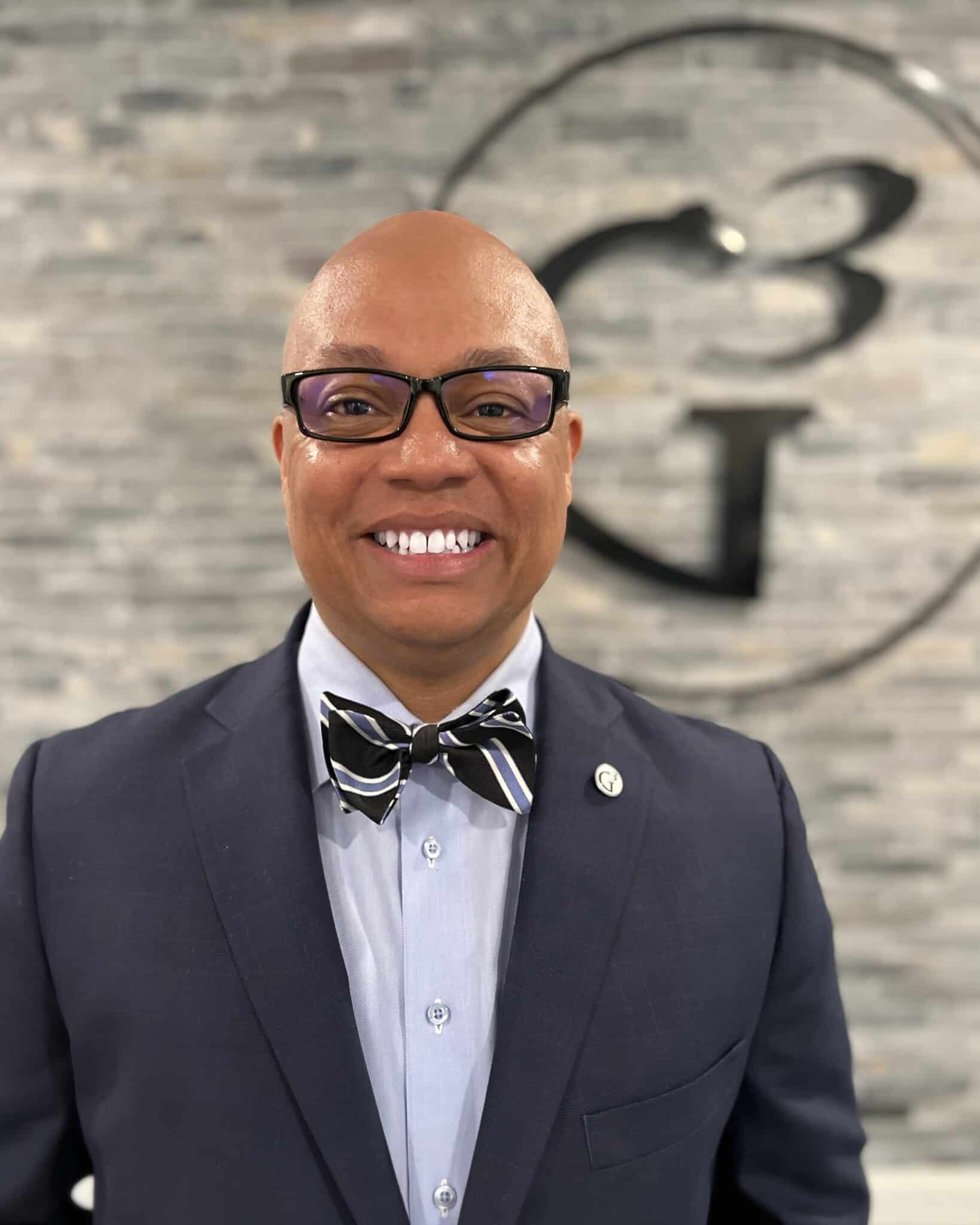I was 12 when I had the talk with my parents. Not that talk. This was the conversation you had with your parents about “the rules”. Now at twelve, I had finally graduated from playing in front of my house to going over to someone else’s house by myself. This outing could also include a trip to the store to purchase gum, candy, and even sodas with the money we earned doing chores. I had finally reached the big time. And now, it was time for my mom and dad to have the talk with me. My parents wanted me to know how I was to conduct myself while I was away from home, apart from their watchful eyes.
My life was far from perfect. My parents would be the first to admit the same. My mother gave birth to me prior to her marriage with my father. This happened at a time when out of wedlock birth was frowned upon by the community. The strain of this reality, however, didn’t keep her from graduating high school and going on to nursing school. And my dad, was no deadbeat. He worked hard to support our family.
I recognize that my story comes from a different point in time. See, when I grew up, kids didn’t have cell phones or gaming consoles. Instead, we went outside to play until the streetlight came on. When the streetlight came on, it was time to go home. Our parents, though invisible from the street, still seemed to be within earshot of all the action.
What I’m sharing is all too unfamiliar to modern-day parenting. In our current culture, parents celebrate the whimsical emotion of their child’s feelings as factual statements of who the child is to be. Good parenting is marked by those parents who willingly await their child’s decision regarding which gender, they will choose.
Distinct roles for parents and children have been removed. In their place is something for which my parents, who are still alive, have no understanding. I’ve come to realize that some of the things my parents taught me are in short supply. As you engage family during this time of year, make sure you take the time to thank your parent(s) for the common instruction they provided you. Allow me to present a few things my parents taught me.
The Talk
My mom is four foot ten inches tall. But don’t let her short stature fool you. She was indeed the matriarchal enforcer of the family. On this day, she provided all of the instruction for the talk. My dad remained quiet and simply nodded his head at important points during her instruction.
“Now listen, Virgil” she said with sober intention. “Don’t get out here in these streets and do something that’s going to mess up our name.” Up to this point, I had no idea that we had a name that required protecting. She continued, “And when you go to the store, don’t steal anything from the store.” I had no plans whatsoever to do so. The thought hadn’t crossed my mind. She went on, “Also, you need to know, if your friends are stealing something and you’re with them, it’s the same as if you’re stealing too. Remember that…” she explained.
My father never finished school. With a sixth-grade education, he left school to go to work on a farm to help his very large family survive. Barely able to read, my dad never complained or played the victim.
My dad nodded at the end of each sentence. “Finally,” she said, “…if you do something that gets you caught up with police, don’t bother to call home because your dad and I have no intention of coming to jail to get you out and you know better. You should never be involved in something that’s going to get you caught up with the police.”
While my dad was quiet for this particular instruction, he is known to deliver sobering one-liners that grab my attention. He is a man of few words, but each one counts. My father never finished school. With a sixth-grade education, he left school to go to work on a farm to help his very large family survive. Barely able to read, my dad never complained or played the victim. He always told me that I could be whatever I determined to be as long as I set my mind to it and worked harder than others in order to accomplish my goal (of course he used more colorful words to express this). If I ever got mouthy or tested the limits, my dad was famous for telling me, “Son, I brought you into this world and I can just as easily take you out of it.”
Fear is a good thing
Scripture is clear that the “fear of the Lord is the beginning of knowledge” (Prov. 1:7 ESV). In addition, the fifth commandment of the decalogue instructs us to “honor our mother and father” (Exod. 20:12 ESV). My favorite of these instructions comes from Ephesians 6:1–3 where it reads, “Children, obey your parents in the Lord, for this is right.Honor your father and mother (this is the first commandment with a promise),“that it may go well with you and that you may live long in the land.” Regarding that particular verse, I always thought that God had a clear revelation of my family when the text reads, “that it may go well with you and that you may live long in the land.” See, I honored my parents. I was concerned that if I dishonored them, they would fulfill the promise to “take me out of this world.”
While I had respect for teachers, other parents, and even the police, I had a healthy fear of what my mother would do to me if she learned I had dishonored our family. When we approach a passage, like Proverbs 1:7, have you noticed that we seem to minimize the word fear? We prefer to reduce it to the kind of respect you should have for a peer or co-worker. The truth is, there were times when I was shaking-in-my-shoes afraid of my mother. You could call it respect. However, as a child, the thought of facing my mother’s wrath kept me out of a great deal of trouble. If this is true of a parent, how much more should we recognize the one greater than our parents to whom we must give an account?
I cannot ever recall a time when he told me that I would not be able to accomplish something due to systemic racism. He never blamed the white man or anyone else for that matter, for his plight in life.
Life isn’t fair
As I mentioned, my father had a sixth-grade education. Functionally illiterate, my father struggled to read simple instructions. When he had difficulty reading my mother would help. I remember my father would practice reading by memorizing familiar passages of Scripture. Later, he would try to identify the words he’d memorized in other settings. What my father lacked in education, he made up for in wisdom and work ethic. My father, born in 1949, lived in the Jim Crow south. He experienced segregation and racism firsthand. However, I cannot ever recall a time when he told me that I would not be able to accomplish something due to systemic racism. He never blamed the white man or anyone else for that matter, for his plight in life. However, he did provide me with valuable lessons. He once said, “Son, life isn’t fair. . .no one owes you anything and you will have to work twice as hard as the next man if you’re going make it.”
Truth is, I assumed this was what every good father said to their son. I’ve since learned that far too few have fathers and fewer still believe what my father taught me. If there was ever a verse of scripture that reminds me of my father it’s Proverbs 10:4 which says, “A slack hand causes poverty, but the hand of the diligent makes rich.” While we were never financially rich. I do believe there to be great wealth in the Walker household.
Hard work Earns Respect
In order to make it financially, both of my parents worked full-time jobs. My mother worked as an overnight nurse. She worked graveyard shift from 11:00 pm until 7:00 am. After work, she would come home and ensure my brother and I were ready for school before heading to bed to get some rest. My father, would work from 7:00 am in the morning until 5:00 or 6:00 in the evening, depending on the day. During my early teen years, I had the benefit of working with my father, who in addition to working a regular job, had a cleaning business. During the summer months, he allowed me to work with him cleaning the various buildings he had contracted. This allowed me to see how hard my father worked and how respected he was. While he had a job that most would consider lowly, his work ethic and demeanor elicited great respect.
If there was one thing, I wish I would have passed on to my children, it’s my father’s work ethic. My dad is the hardest working man I know. He taught it to me and I’m incredibly grateful. Unfortunately, not wanting my children to struggle, I allowed culture to influence my decisions to keep them from learning the benefit of a hard day’s work. I realize I’m not alone. Many parents who have earned a healthy living have given their children what they did not have as kids. I can only hope that in the time I have remaining, I make a course correction.
Scripture is clear, “if a man doesn’t work, he should not eat” (2 Thess. 3:10 ESV). Proverbs 12:11 says, “The one who works his field will have plenty of food, but whoever chases daydreams lacks wisdom.”
I recognize these are common lessons; common in the sense that they are simple and even familiar to many. However, I also realize that common knowledge is often rarely practiced.





